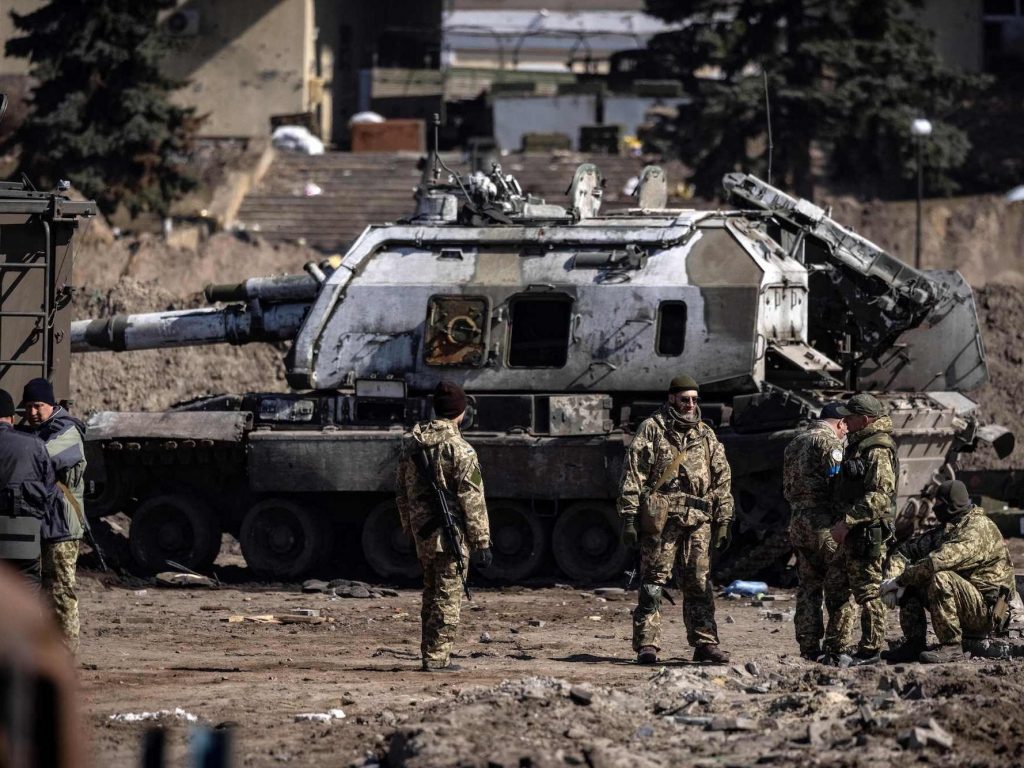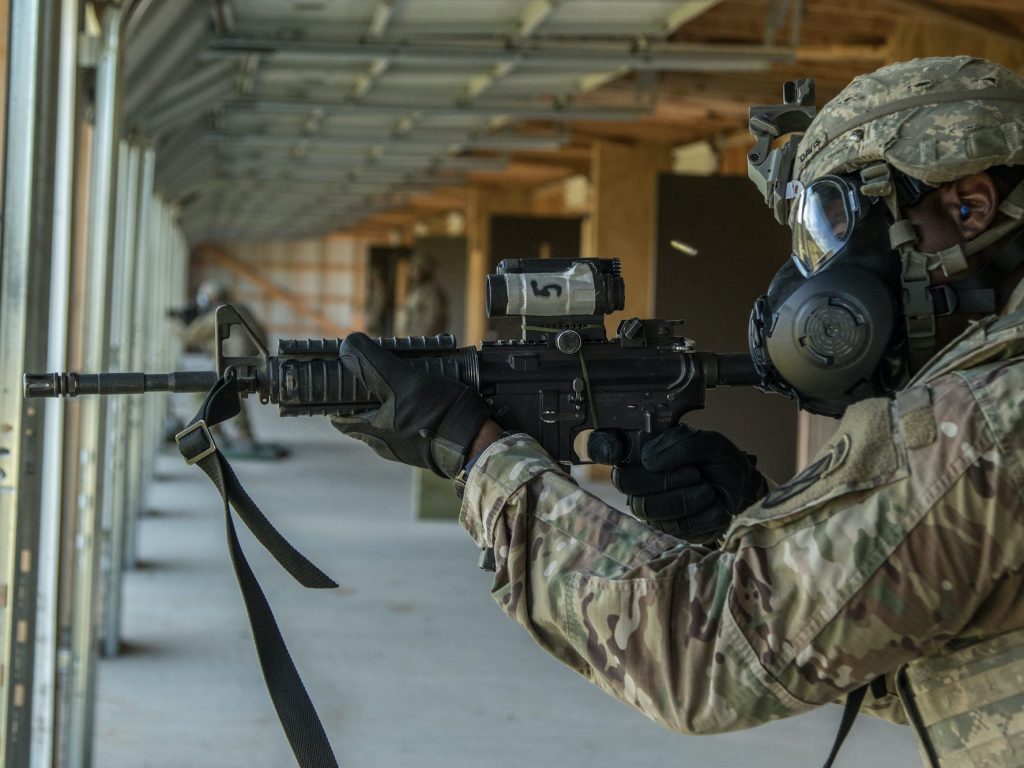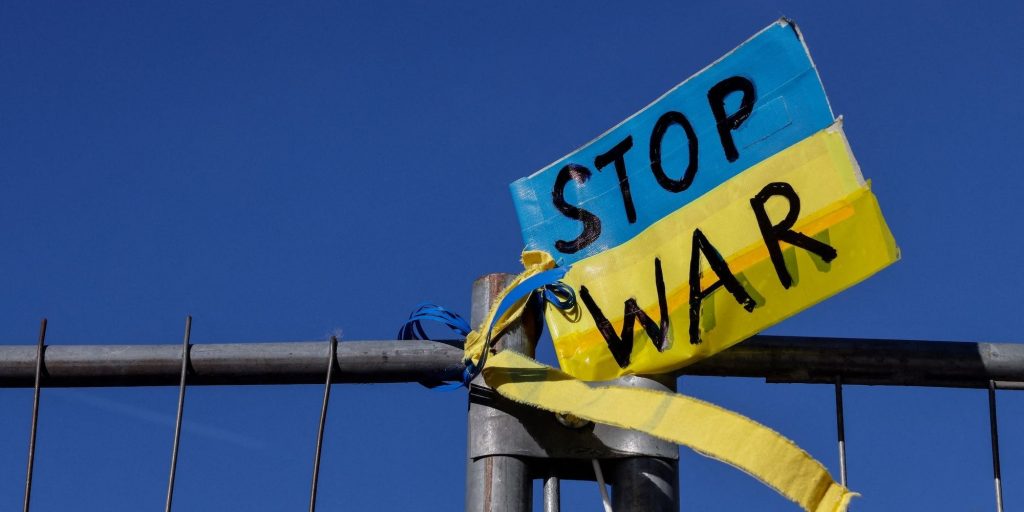- Russia's war in Ukraine is grinding into a deadly stalemate after five weeks.
- Russia can continue trying to seize the country or negotiate a ceasefire. It's unlikely they'll simply withdraw.
- "In Russia, bad things happen to rulers who lose wars," a military analyst told Insider.
After nearly five weeks of war between Russia and Ukraine, a clear-cut end to the bloody conflict still isn't in sight.
Russian President Vladimir Putin has some Ukrainian cities surrounded, and civilian areas are being bombed daily as observers and eyewitnesses accuse Russian troops of war crimes. More than 7,000 Russian troops have been killed in — with NATO reportedly estimating as many of 40,000 has been killed, captured or deserted. And in a war that Russia claims is not a war.
The war has caused an estimated $63 billion in damages in that time, and killed at least 1,179 people as 3.9 million have fled the fighting in the most rapid mass migration in Europe since World War II.
As hostility between Russia and Ukraine continues, world leaders and civilians across the globe can't help but speculate how the conflict might resolve. Here are four ways the war could eventually end, according to experts closely following the conflict.
Conquest
A defeated, Russian-controlled Ukraine has been Putin's ultimate goal. With all that he's invested in this war – thousands of soldiers, bombs, and other weapons – it seems unlikely he'd easily settle for anything less. To defeat Ukraine, Putin would have to force Ukrainian President Volodymyr Zelenskyy and his government from power. From there, it's likely he'd turn the country into a puppet state like Belarus.
Some experts believe the only way for Putin to defeat Ukraine is by widescale destruction — and even then it may be out of reach.
The Carnegie Endowment for International Peace's Christopher Chivis estimates that in order to achieve a puppet regime, Putin would "make an example" of Ukrainian cities like Kharkiv or Mariupol, bearing down militarily and leaving them in ruins, similar to the way Russia has treated Aleppo and Grozny in recent years. Then, Chivis said, Putin would threaten to destroy Kyiv, Ukraine's capital city.
But the road to a successful puppet government would be greatly hindered by the Ukrainians themselves, who have shown that they are unwilling to surrender to Russian control. Nearly two-thirds of leaders installed in puppet regimes are either assassinated or violently overthrown, according to the Washington Post.
The Russian military is continuing its grinding offensive against Mariupol that's left the city in ruins and civilians trapped without heat, food or water. It is losing ground around Kyiv and apparently trying to reinforce its positions there as Russian officials claim they are shifting focus to the eastern region.

Russian retreat
Over the past five weeks, Ukraine has put up a stronger fight against Russia than experts expected. Russia's military overshadows that of Ukraine in every way, and yet, they have been unable to overtake Ukraine's capital, Kyiv, or any of its largest cities.
One way the war could end would be a Russian withdrawal. But that's highly unlikely, experts cautioned.
"In Russia, bad things happen to rulers who lose wars," Mark Cancian, a retired US Marine colonel and senior advisor with the Center for Strategic and International Studies, told Insider. "The last ruler who lost the war was deposed and executed," he continued, referring to Nicholas II, the last czar of Russia.
Peace agreement
A peace deal is one of the likelier ways for this highly destructive war to draw to a close.
Any viable peace deal between the two countries would likely rely on Ukrainian neutrality, or in other words, Ukraine's promise not to join Western security groups like NATO. Putin views Ukraine's bid to join NATO as a threat to Russian security. Ukrainian negotiators offered a guarantee never join NATO at peace talks.
Another important factor in a peace deal would be sovereignty over the Donbas region, and Crimea. At the start of the invasion, Putin officially recognized the independence of Luhansk and Donetsk, pro-Russian separatist-controlled regions; Russian forces, at Putin's orders, seized the Crimea peninsula with its Black Sea port of Sevastopol from Ukraine in 2014.
According to Cancian, a peace deal would likely include Russia's continued de-facto rule of the Donbas.
"I think they could make some arrangement whereby Ukraine does not recognize the loss of the Donbas, but the Russians keep the status quo with their two autonomous regions," he said. "In other words, it stays unresolved."
In justifying the invasion on Feb. 24, Putin called for Ukraine to be demilitarized as was as denazified — a baseless claim against a democratic government led by an elected Jewish politician. It remains unclear how important these positions remain to Russian leaders.

Conflict with NATO
So far, NATO allies have tried to support Ukraine while staying directly out of the conflict.
The United States and other NATO members have sent weapons, ammunition, medical supplies, and other military equipment to Ukraine, but have insisted they will not send troops. They've also placed harsh sanctions on Russia, targeting banks and elites and trying to cripple its economy.
If NATO were to become directly involved in the conflict, the possibility of widespread destruction beyond Ukraine — and possibly even nuclear war — would become more likely.
On March 24, U.S. President Joe Biden warned that NATO would respond directly to the conflict should Putin's forces attack with chemical weapons. However, the extent of that involvement isn't clear, with Biden saying the nature of NATO's response would depend on how the chemical weapons were used.
Only once before in history have two nuclear-armed sides directly fought a war against each other; the Cold War between the West and the USSR, for example, was largely fought through proxy forces backed by the superpowers. The US has reportedly analyzed whether a hot war between nuclear combatants will go nuclear.
"It's clearly a place that we don't want to go," a general who ran the war game said.
